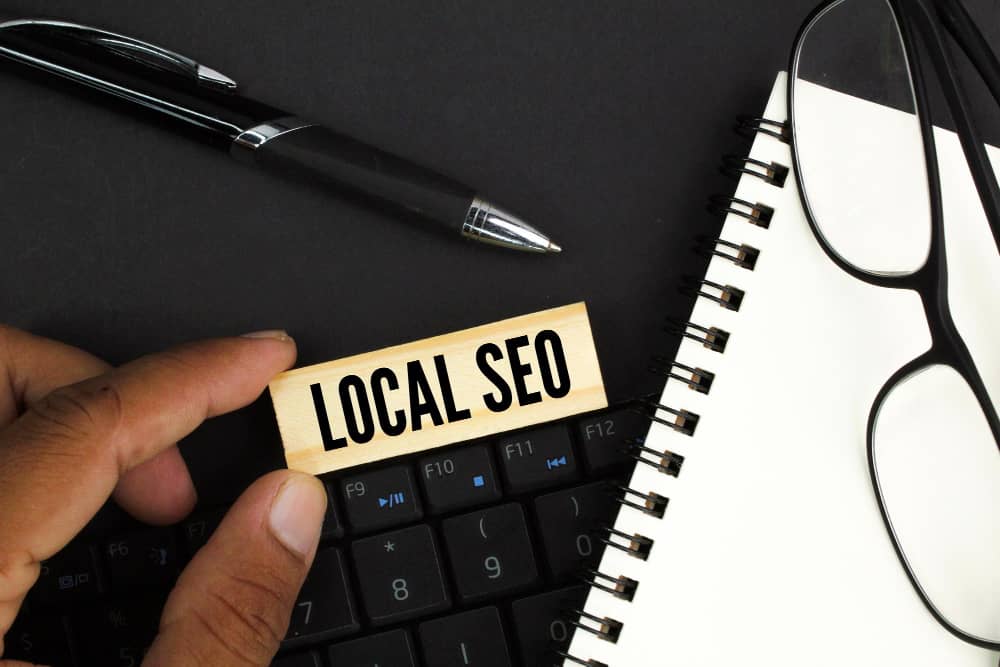
Enterprise SEO | The 2025 Guide for Australian Businesses
What is Enterprise SEO and Why Does it Matter for Australian Enterprises?
Enterprise SEO at the most basic level is still SEO, just on hard-mode. Instead of the small website architecture and 20-30 pages you would see on a small business website, with enterprise SEO you can be dealing with hundreds or even thousands of pages.
What's worse? You're not operating in a bubble. Updating, modifying, and ensuring compliance with every page requires coordination across various departments which can eat up resources on its own.
While if not managed properly, SEO can be a ticking time bomb for your enterprise business, it also has the potential for huge rewards if you invest time and resources into it.
Think of it this way, if done properly SEO means increasing conversions, increasing clients, and increasing revenue, all with decreasing costs.
If done improperly and the proper resources aren't allocated to keep your SEO strategy updated? Good luck showing up on Google and benefiting from organic search traffic. (Since organic search is responsible for 53% of all web traffic, that means you're missing out on a little over half of the potential customers online.)
Of course Enterprise SEO isn't all fun and games. Australian enterprises often struggle with geographic targeting (balancing local and global reach) as well as operating within a smaller market, yet facing higher competition in key industries like finance, eCommerce, and SaaS.
Just like all things in enterprise-level businesses, inefficient allocation of resources can be your downfall. Wasted budgets, missed opportunities, and inefficiencies can slow down and even harm your business's SEO strategy. Which means reduction in ebitda, increased churn, and more clients going to your competitors.
At Branchlead we specialise in SEO and SEO strategy at all levels. If you need help with Enterprise SEO strategies, technical SEO, content marketing, or even enterprise-level keyword research, contact us today and we can help your large business manage your SEO to conserve time and resources so you can focus on bigger projects that generate more revenue for your business.
Defining Your Goals---What to Expect
This article is a bit more technical than our usual content, but the goal here is to provide enterprise level businesses with general guidelines and an idea of how much work is needed to properly implement SEO strategy at the enterprise level.
If you are looking to implement, or improve upon an existing SEO strategy in your enterprise-level business, this guide should have everything you need to know to get your SEO under control and start maximising your profits from SEO.
As always, if you are looking for someone to help you implement these points in your own business, contact us today and we can help!
So, let's dive in.
The Key Components to Enterprise SEO | Where You Should Allocate Resources
Technical SEO for Large Businesses | Manage Scale Without Losing Performance
Site Architecture:
When dealing with site architecture on an enterprise level, it's important to remember to leave time to maintain content.
While small businesses may only deal with 5-10 pages, large enterprise businesses can easily be faced with 300+ pages including legacy content with outdated structures.
When you have that many pages, you need to regularly monitor data and consolidate content to avoid keyword cannibalisation, while still preserving valuable legacy traffic. (Basically your pages fight over Google ranking on the same keywords and both end up losing to your competitors.)
From a resource standpoint, (and to avoid tech debt accumulation) yes it's important to have developers continue to move forward on other projects, but you must also allocate time to prioritise SEO tasks within their existing workflows.
If you are neglecting your site architecture, you could be losing rankings, impressions, and clicks on content that would have otherwise performed well.
What does that mean for you as a CEO? Lost contracts, lost conversions, lost clients, and lost revenue in every department.
Crawlability & Indexing:
Google's crawl budget is finite. For small sites that's usually not a problem, but if you have a larger site with 500+ pages, not everything will be crawled regularly. Just like your enterprise business, Google also needs to effectively allocate resources.
If you want to make the most of the crawling that Google does, you need to ensure you are proactive with sitemap management as well as schema markup. These are essential to ensure crawlers can find their way around your site and properly index your pages.
What happens if Google can't crawl your site properly? Unfortunately, they aren't going to waste valuable resources figuring out how to do so. That's why it's essential that your sitemap and schema are done properly if you want to benefit from Google's search traffic.
Mobile Optimisation & Core Web Vitals:
Bloated code, outdated frameworks, and unoptimised media hurt mobile performance. Many Enterprise sites suffer from these issues because there are rarely resources allocated to updating and optimising the way things are done.
Over time if nothing is updated, the problems only compound and it becomes harder and harder to fix. This can become a major problem when you start failing to hit Google's Core Web Vitals benchmarks. Failing to do so can impact your rankings, and not in a good way.
You may be thinking 'Oh, that's fine, we don't rely on SEO anyway...' but the truth is, issues like page load speed don't just impact your SEO ranking. According to Google, a 1-second delay in pageload time can reduce conversions by up to 20%! Have you checked your pageload speed lately?
Quick Tip: To be successful in the online space, Enterprise teams must budget for continuous performance audits, front-end optimisation, and collaboration between UX, development, and SEO teams.
Content Marketing for Enterprises | Scale Without Sacrificing Quality
Content Strategy:
At the Enterprise level, publishing content at scale requires consistency and focus. It's important to establish clear workflows that clearly designate who has ownership of each step.
If you don't have a clear process that describes who is responsible for which step and who is responsible for moving each step forward, then it's easy to fall behind on your content schedule.
While falling behind on your content schedule may not seem like a big deal, many of your resources are already locked-up in other projects. Delays in content creation only increase the work debt of your team. (Btw: Trying to 'catch up' with tasks also tends to produce sub-quality content.)
While your audience may not be die-hard fans waiting to consume every piece of content, algorithms tend to reward brands that are consistent with more impressions and views. Which at enterprise-level easily translates to more clicks, more sales, more revenue, and more growth.
AI Integration:
One topic that has been garnering more and more attention over the past few years is AI and the role it plays in content creation.
The use of AI can speed up and streamline any process, reducing wasted resources and costs. Content ideation, internal linking, and drafting can all be done in minutes with AI, but AI is not perfect so human oversight is needed to ensure quality and relevance.
Training on the use of AI and prompt engineering can be a valuable use of resources for businesses that use AI regularly. Knowing how to communicate with AI is key to getting usable output.
Quick Tip: While we usually only focus on SEO, the rise in AI highlights the importance of Generative Engine Optimisation (GEO) for AI-driven search engines. At Enterprise level this is definitely something worth dedicating resources to if you want to get the largest ROI on your strategy.
Cross-Department Collaboration:
Content creation doesn't happen in a bubble. It's vital to maintain communication and coordination between marketing, compliance, and legal teams to ensure content not only aligns with brand messaging, but also meets regulatory requirements.
You can create the greatest content the internet has ever seen, but if it fails to meet regulatory requirements you could be facing fines, lawsuits, or worse. When it comes to meeting regulatory requirements, when in doubt, play it safe.
Enterprise-Level Keyword Research | Target What Actually Moves the Needle in Your Business
High-Impact Keywords:
When researching keywords, it's essential to think about what stage of the buyers journey your customers are in. To get the most out of SEO, target keywords with commercial intent (when the customer is ready to buy). This best aligns with enterprise goals and avoids vanity metrics like 'impressions' and 'views' from window-shoppers.
If a keyword isn't likely to rank and bring in more conversions, don't waste time or resources on it. There's enough work to do at the enterprise level without wasting time on small fish (that you have to update and maintain later!).
Resource Allocation:
If you want SEO to be effective and move the needle for your business, you need dedicated SEO analysts and you need to invest in enterprise tools like Semrush, Ahrefs, and BrightEdge.
Don't be afraid of investing money and not seeing immediate results. SEO is the most effective long-term marketing strategy and you will often need months to see results, but SEO will continue to bring you conversions with legacy content long after all your other forms of advertising run their course.
Ongoing Evaluation:
While legacy content can bring you customers and leads years down the road, SEO isn't completely set-it-and-forget-it. To get the most out of your SEO strategy, you need to regularly review and update keyword strategies.
The most important thing is to ensure alignment with shifting market trends and your business' goals. SEO doesn't operate in a bubble. You still need to track results and adjust accordingly.
Quick Tip: Keyword research is the foundation of your SEO strategy. If your foundation is weak, it doesn't matter how many resources you allocate to building on it. Expect increased costs, reduced revenue, and customers going to your competitors.
Scalable Link Building Strategies | Build Authority Like a Pro
Strategic Partnerships:
Link building is all about building authority. (Quite similar to PR marketing.) You want to collaborate with industry leaders for things like co-branded content, webinars, and podcasts.
Collaborate with other big names or enterprise businesses and be sure to get backlinks in the process.
Quick Tip: Don't just get backlinks from anyone. Backlinking links your reputation with theirs. That means their bad reputation on Google can become your problem, which means more customers lost to your competitors.
PR and SEO Alignment:
Use public relations efforts as a tool to help boost SEO strategies and enhance your digital authority. Partnering up with another business to host an event? Get your website linked on their website and vice-versa.
Monitoring Backlink Health:
It's also important to regularly audit and monitor backlinks. If there are any that damage their reputation, then it's best to try to quickly get out of them to keep their reputation from impacting yours.
Future-Proof Your Strategy with These Best Practices for Enterprise SEO in 2025
AI & Automation:
Implement automation where possible for reporting, technical audits, and internal linking. This will allow you to streamline your SEO process and reduce errors (although once again, when dealing with AI and/or automation, human oversight is always necessary).
User Experience (UX) and SEO Synergy:
UX is absolutely essential to SEO. If Google sees users regularly visit your website and leave within just a few seconds, it will have a negative impact. Invest in UX improvements to reduce bounce rates, increase user engagement, and enhance your SEO strategy.
Quick Tip: You can think of your website as an extension of your office. If you don't give customers a good impression they won't do business with you. Instead they'll go to your competitors (the pretentious ones who give them sparkling water instead of mineral water).
Data-Driven Decisions:
For most enterprise-level businesses, this is a no brainer. Data is king. Use enterprise-level analytics tools like GA4 or LookerStudio to track performance and make informed decisions.
Governance Models:
To ensure consistency and clarity across departments, be sure to set SEO guidelines and best practice. Content posted without being mindful of SEO best practices can negatively impact the reputation of your business. Remember, SEO compliance is everyone's responsibility.. (Or at least it should be if increasing revenue and keeping your share of clients are your business goals!)
Conclusion: Smart Resource Management is Key to Enterprise SEO Success
While the rules of SEO are the same for all levels, enterprise SEO requires a bit more heavy lifting with a lot more moving parts. At the enterprise-level you need to utilise people, time, and your budget strategically.
If any one of these elements isn't inline with the others, you risk 'breaking' your whole strategy which can cause major headaches and irreparable damage to your reputation with Google which means higher costs, increased churn, and more customers for your competitors.
As integral as SEO is to long-term marketing, it should be treated as a core business function, not a side task. SEO should have the same as or higher priority than other internal management tasks.
You can think of SEO like an apple tree. If you let it go, sure it will probably give you some apples. But if you really take care of it, maintain it, water it, and fertilise it, it will give you more apples than you know what to do with (once you give it some time to grow of course!).
Quick Tip: Every quarter you delay a scalable SEO strategy for your enterprise-level business is a quarter your competitors expand their market share, gradually pushing you out. Don't let competitors push you out of your own market, get started on SEO today.
Ready to implement SEO in your enterprise level business? Branchlead can help.
If you need an outside agency to...:
...come in and manage all your SEO (both creating new content and updating old)...
...consult with your in-house department to help improve effectiveness or reduce their workload...
...fix technical issues on your website and webpages that your in-house team can't fix or doesn't have time to fix...
...update your site architecture and schema...
...Branchlead can do it all. Just contact us today for a free consultation.
Enterprise SEO FAQs
What is Enterprise SEO and how is it different from regular SEO?
Enterprise SEO is SEO for large-scale websites with hundreds or thousands of pages. Enterprise SEO focuses on working at scale, managing complex site structures, utilising automation, cross-department collaboration, and managing technical SEO challenges unique to big businesses. Due to the complexity at the enterprise level, proper resource allocation is key to success.
Why is Enterprise SEO important for Australian businesses in 2025?
Australia's digital economy is expected to exceed $315 billion by 2030. This means online competition will be fiercer than ever. Enterprise SEO is key for large Australian businesses to stay visible, outperform competitors, and survive in the world of ever evolving search engine algorithms and AI-driven search experiences.
How do you manage SEO for websites with 500+ pages?
Use smart site architecture. Avoid duplication and keyword cannibalisation.
Optimise sitemaps and internal linking for efficient use of crawl budgets.
Use automation tools where possible for monitoring, reporting, and technical audits.
Invest in a dedicated SEO team that works closely with developers and content creators in all departments.
What is a crawl budget and why does it matter for enterprise websites?
A crawl budget is basically how many pages Google's crawling bots will crawl on your website (over a given period of time). If you have hundreds of pages (like most enterprise sites do), important pages might not get indexed or updated in search results (which means customers go to your competition). Properly managing your sitemap, removing duplicate content, and improving your site speed can optimise your crawl budget.
How can AI improve Enterprise SEO strategies?
There are a couple ways AI can improve enterprise SEO strategies. AI can automate repetitive tasks like keyword clustering, content audits, internal linking, and predictive analytics. Now in 2025, AI also plays a large role in optimising content for Generative Engine Optimisation (GEO) which helps prepare enterprises for AI-driven search platforms like Google SGE and ChatGPT-powered search.
How often should an enterprise update its SEO strategy?
Unfortunately, Enterprise SEO isn't a one-time thing. Strategies need to be reviewed monthly for technical health, quarterly for content performance, and they need to be reviewed whenever major algorithm changes occur. Continuously monitoring data ensures your SEO strategy stays aligned with the goals of your business and shifts in market trends.
What's the best way for enterprises to build high-quality backlinks?
Create strategic partnerships and produce co-branded content.
Get content published in industry publications and on authoritative media outlets.
Leverage PR campaigns for digital mentions while avoiding low-quality link schemes as these can harm your reputation and domain authority.
How do you measure success in Enterprise SEO?
The key metrics you need to monitor are:
Organic traffic growth
Keyword rankings
Index rates and crawling efficiency
Conversion rates from organic search (The most important to business success)
Growth in domain authority and quality of backlinks. (These can be tracked with tools like GA4 and Looker Studio)
When should an Australian business hire an Enterprise SEO agency?
Considering bringing on an agency to manage SEO for your large-business? If your business:
Has a website with more than 100 pages,
Operates across multiple regions or countries,
Is struggling to maintain organic traffic despite in-house efforts,
Suffers from technical SEO issues or content sprawl,
Then it is time to bring on an enterprise SEO agency like Branchlead to implement strategic, scalable solutions that ensure your business can outperform your competitors and increase ebitda. Contact us today to get your Enterprise SEO strategy back on track and capture more of your share of the market.
Get actionable steps to boost your online visibility and drive more traffic to your business.



























